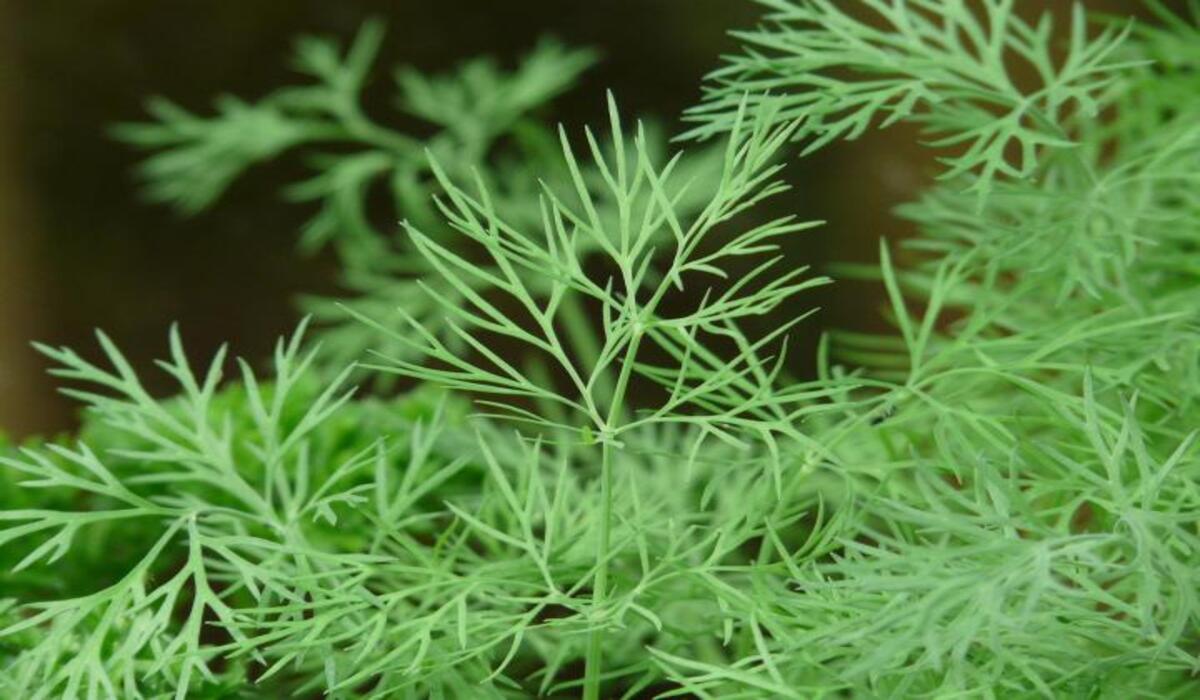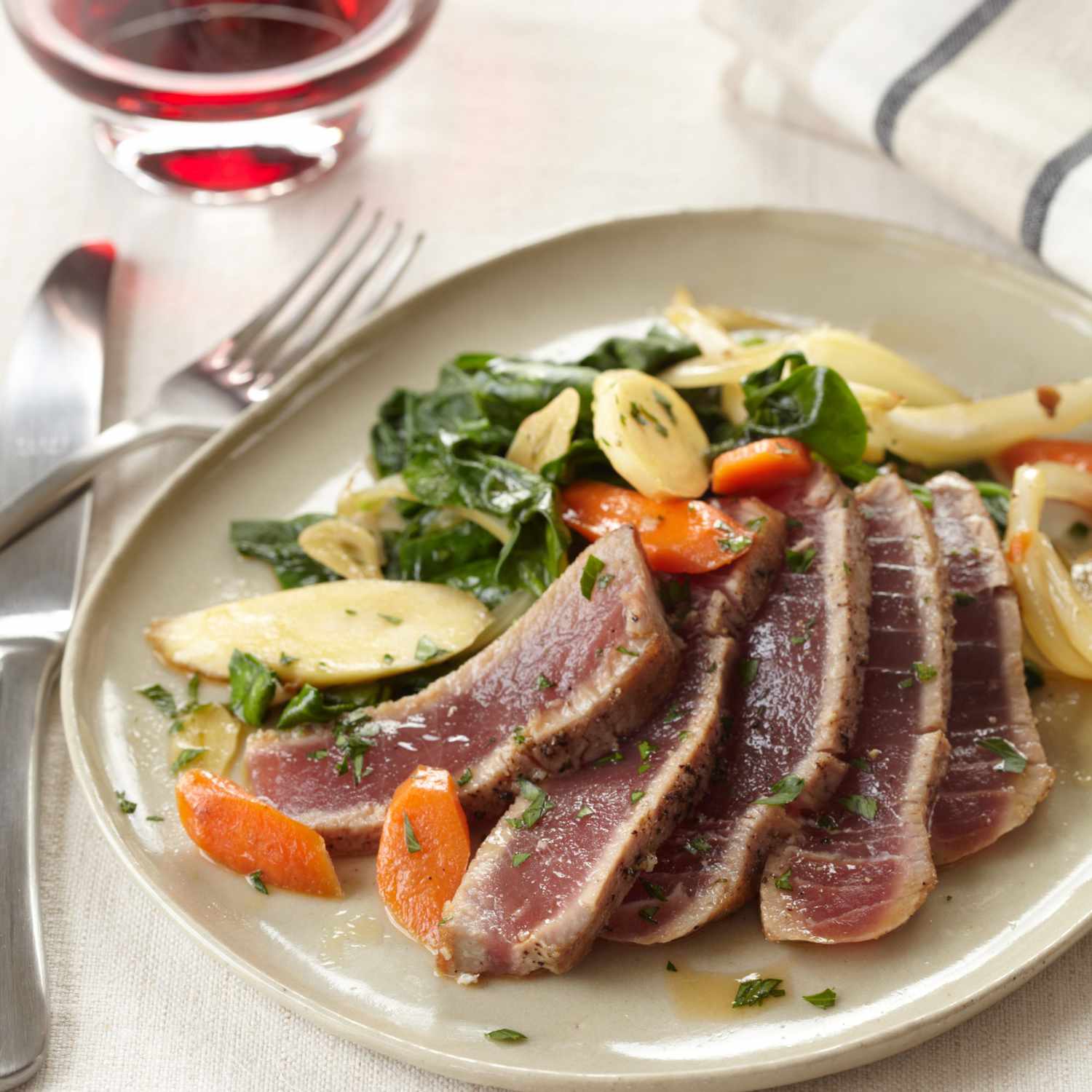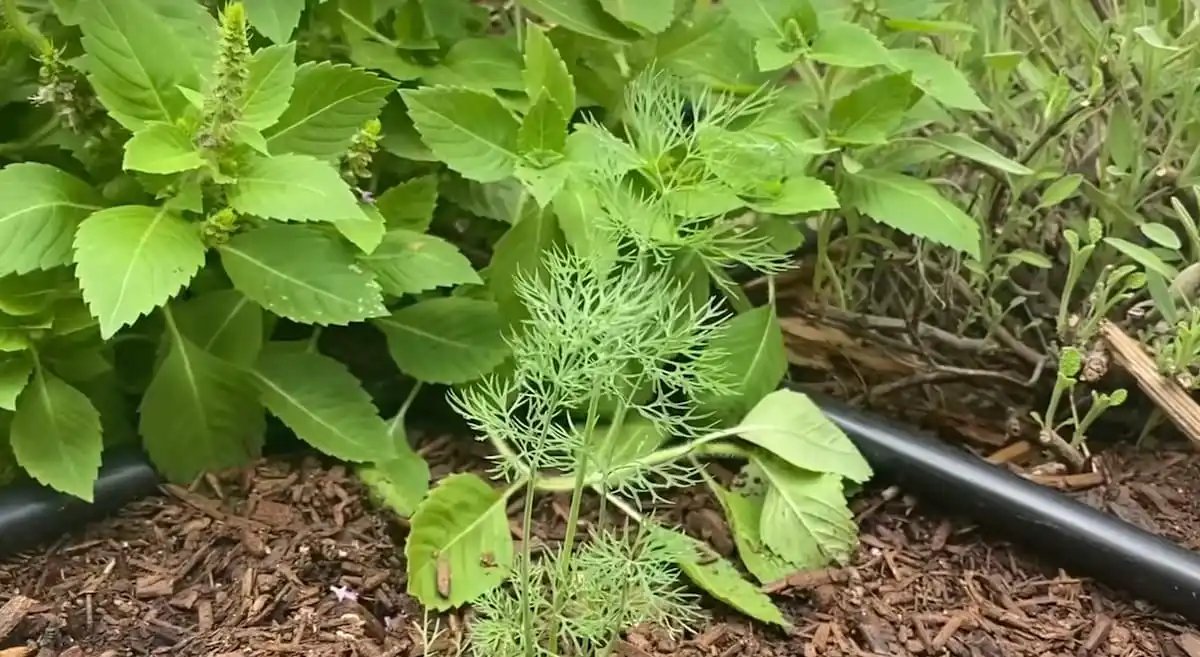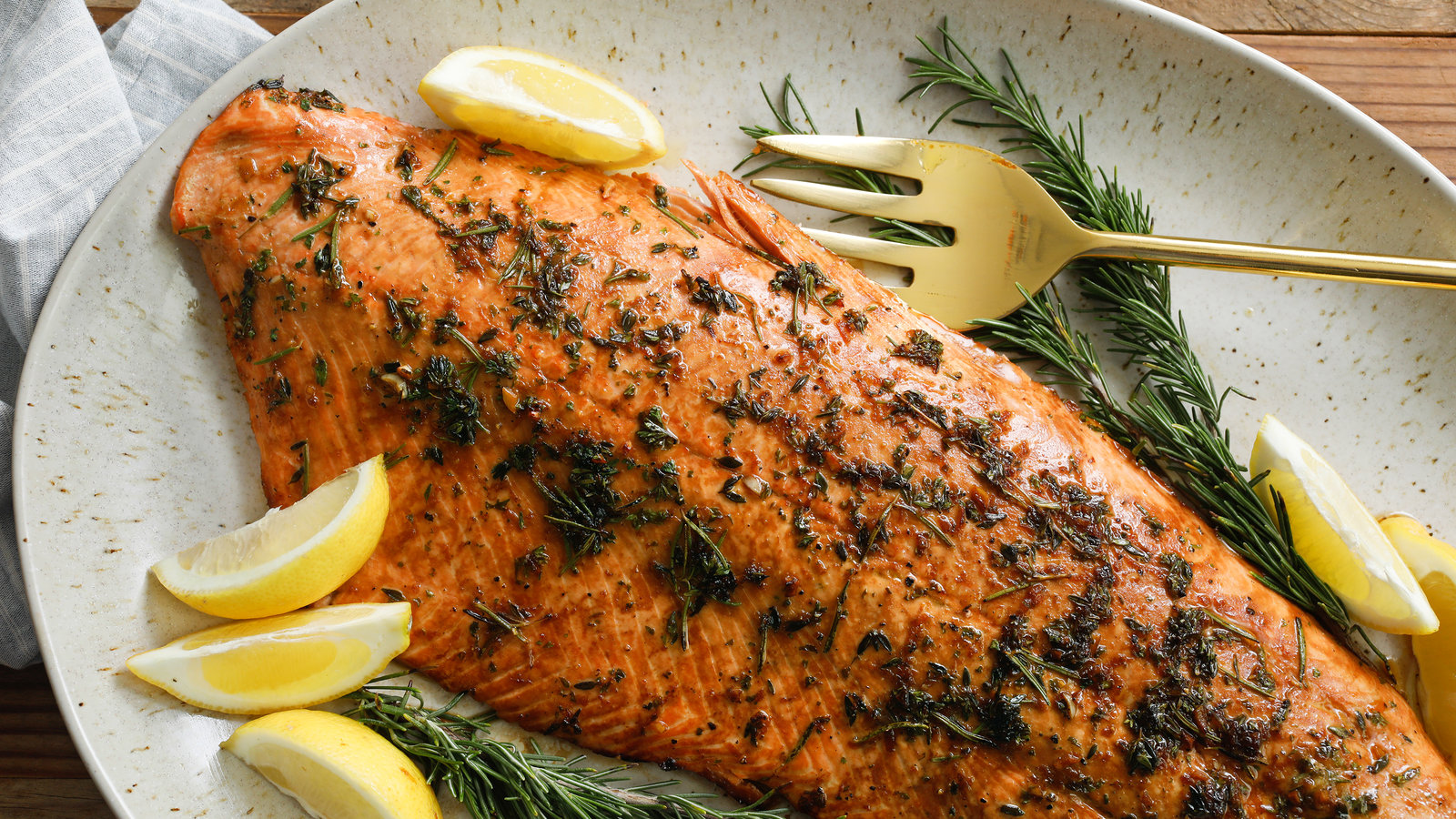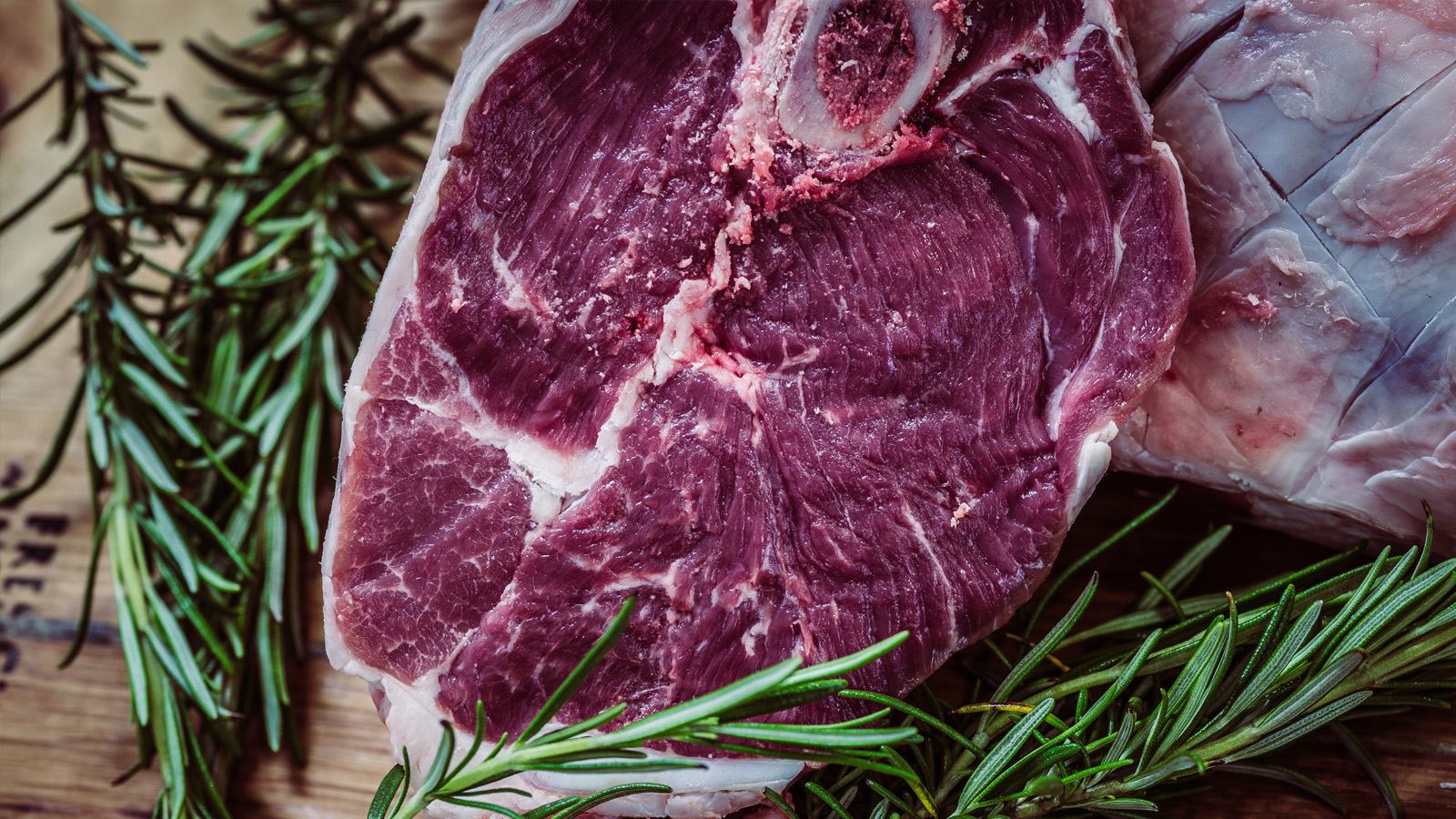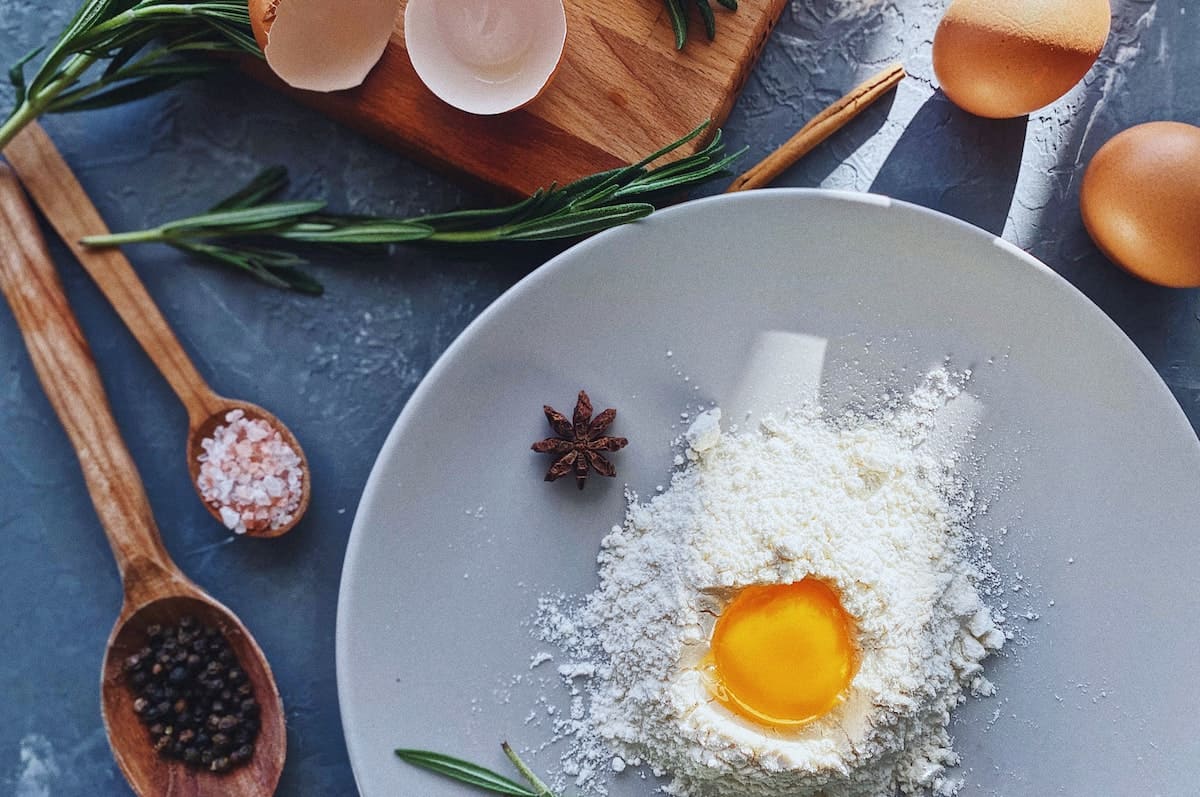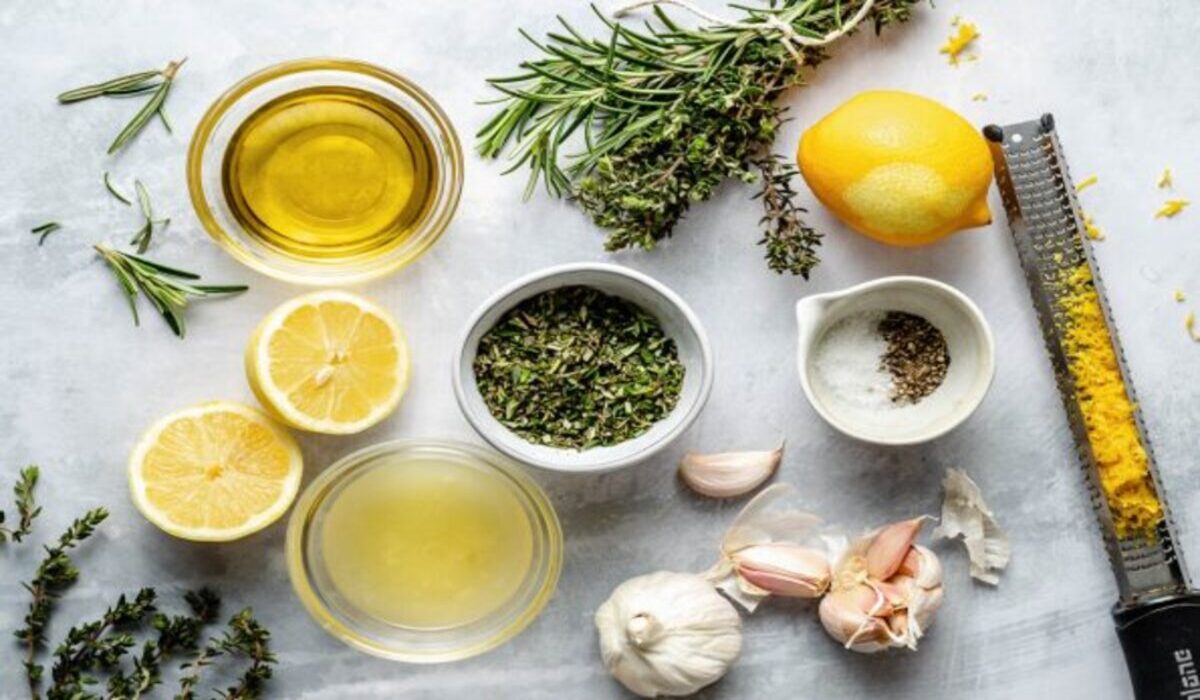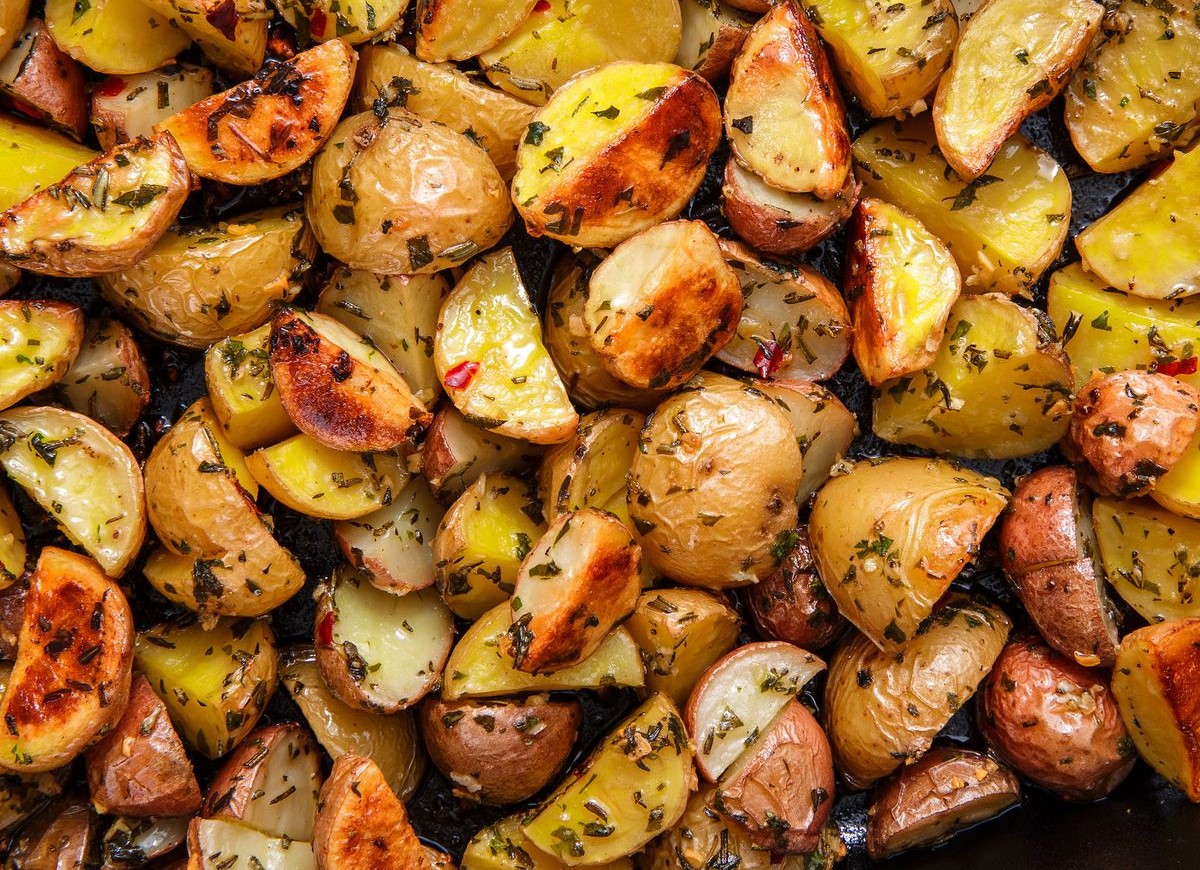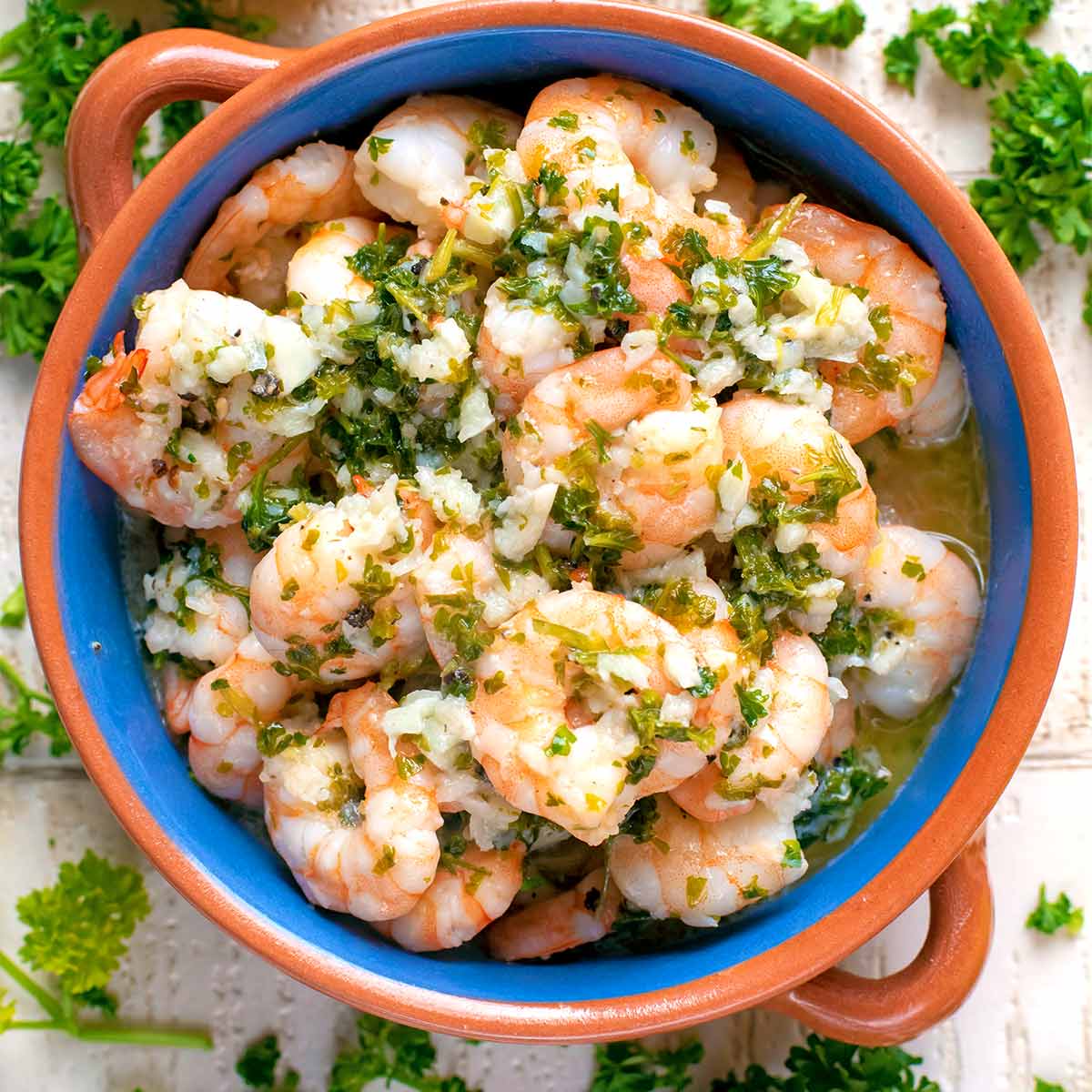Home>Gardening News and Trends>Gardening Trends>What Herbs Go Well With Dill
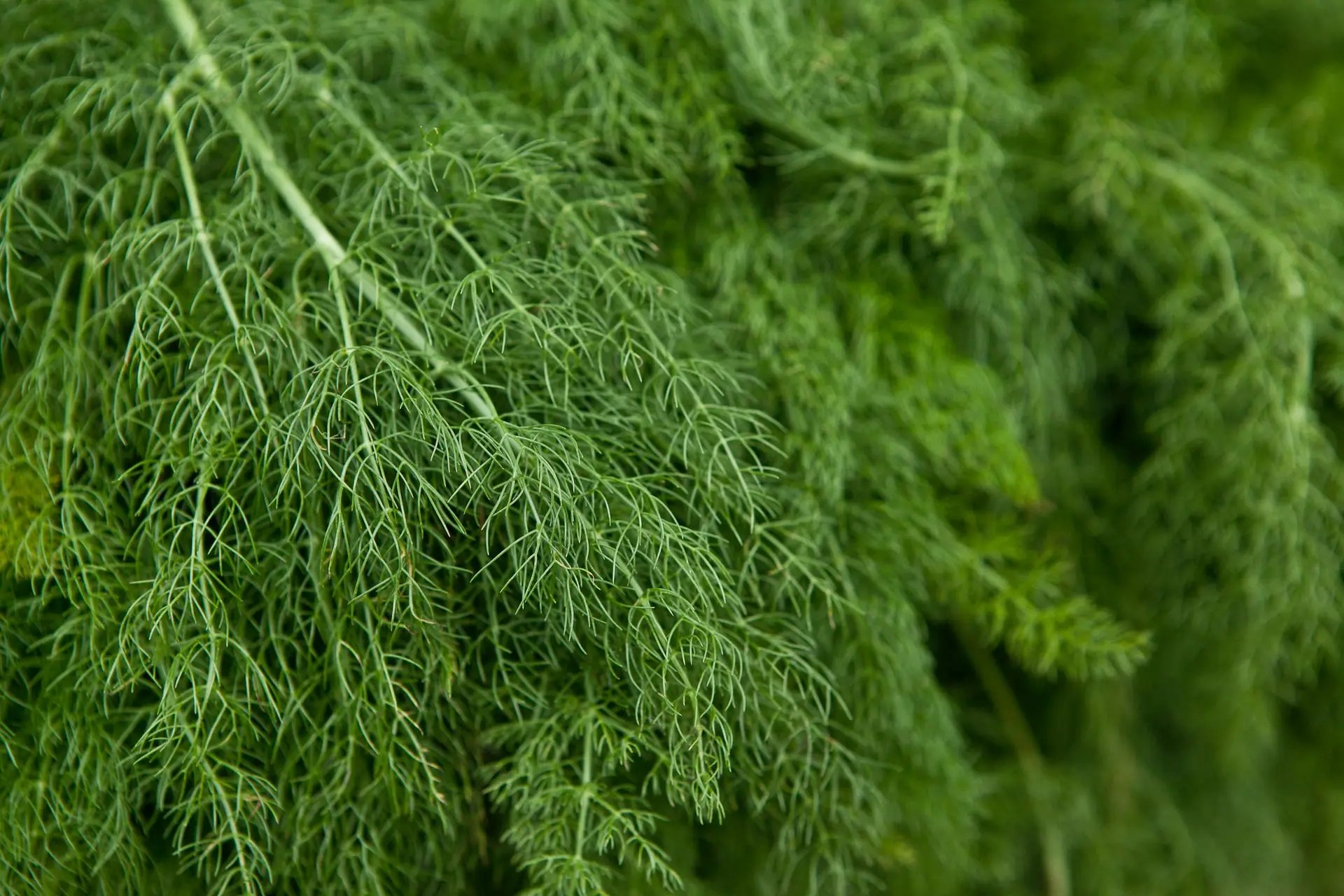

Gardening Trends
What Herbs Go Well With Dill
Modified: January 22, 2024
Discover the latest gardening trends and learn what herbs pair perfectly with dill to enhance your culinary creations. Explore the endless possibilities of herb combinations!
(Many of the links in this article redirect to a specific reviewed product. Your purchase of these products through affiliate links helps to generate commission for Chicagolandgardening.com, at no extra cost. Learn more)
Table of Contents
Introduction
Gardening is a cherished hobby for many people, providing a therapeutic escape and an opportunity to cultivate beauty and sustenance. One popular aspect of gardening is growing herbs, which not only add flavor to culinary creations but also offer a plethora of health benefits. When it comes to herbs, dill is a standout herb that has been used for centuries in various cuisines and medicinal practices.
Dill, scientifically known as Anethum graveolens, is native to the Mediterranean and has a distinct flavor and aroma that is often described as fresh, tangy, and slightly sweet. This herb is commonly used in pickling vegetables, seasoning fish, and adding a vibrant touch to salads and sauces. However, exploring the possibilities of combining dill with other herbs can elevate your culinary creations to new heights.
In this article, we will delve into the world of herbs that pair well with dill, opening up a whole realm of possibilities in your garden and kitchen. By combining dill with complementary herbs, you can create flavor profiles that are unique, aromatic, and irresistible.
So, whether you’re a seasoned herb enthusiast or just starting your foray into gardening, read on to discover the perfect herb partners for dill and unlock a world of delicious possibilities.
Understanding Dill
Before we explore the pairing of dill with other herbs, it’s important to understand the unique characteristics and flavors that dill brings to the table.
Dill is an herbaceous annual plant that belongs to the Apiaceae family. It is characterized by feathery green leaves, delicate yellow flowers, and slender stems. Both the leaves and seeds of dill are commonly used in cooking, adding a burst of flavor to countless dishes.
The leaves of dill have a refreshing and mildly tangy flavor, with hints of anise and celery. They are often used as a garnish or added to salads, sauces, and dips to impart a fresh and vibrant taste. Dill seeds, on the other hand, have a stronger flavor profile, reminiscent of caraway seeds, with a touch of bitterness.
Aside from its culinary uses, dill is also known for its medicinal properties. It has been used for centuries to aid digestion, relieve flatulence, and promote relaxation. Dill contains essential oils, vitamins, and minerals that provide numerous health benefits, making it a valuable addition to both your garden and your diet.
When growing dill in your garden, it’s important to note that it thrives in well-drained soil and requires full sun to reach its optimal growth. It is a fast-growing herb that can reach a height of up to 3 feet, so giving it ample space to spread its feathery foliage is essential.
Now that we have a solid understanding of dill, its flavors, and its growth requirements, let’s dive into the world of pairing dill with other herbs to create delightful and harmonious flavor combinations.
Pairing Dill with Other Herbs
In the world of herbs, dill is a versatile herb that pairs well with a variety of other herbs, enhancing flavors and adding depth to dishes. By combining dill with complementary herbs, you can create a symphony of flavors that tantalize the taste buds. Here are some herbs that go particularly well with dill:
- Parsley: The combination of dill and parsley is a classic herb pairing that is commonly used in Mediterranean and Middle Eastern cuisines. Parsley brings a fresh and slightly peppery flavor that complements the tanginess of dill perfectly. This herb duo works wonders in salads, marinades, and herb-infused oils.
- Basil: Dill and basil come together to create a herbaceous and aromatic combination. The sweet and slightly spicy notes of basil balance out the tangy and slightly sweet flavors of dill. This pairing is fantastic in seafood dishes, pasta sauces, and herb-infused butters.
- Tarragon: The anise-like flavor of tarragon harmonizes beautifully with dill, creating a unique and delicate blend. This combination is particularly delightful in creamy sauces, dressings, and infusions for vinegar or oils.
- Chives: Chives bring a mild onion-like flavor to the table, which complements the freshness of dill exceptionally well. Together, they elevate the flavors of salads, soups, and creamy dips.
- Mint: While it may seem unconventional, the pairing of dill and mint can be surprisingly delightful. Mint adds a cool and refreshing note, balancing the tanginess of dill. This combination shines in grain salads, yogurt dips, and even cocktails.
These are just a few examples of herbs that pair well with dill, but don’t be afraid to explore and experiment with other combinations. The key is to find herbs that complement and enhance the flavors of dill without overpowering it.
Now that we have unveiled the perfect herb partners for dill let’s explore some popular dishes that feature dill and complementary herbs.
Herbs that Complement Dill
When it comes to pairing herbs with dill, it’s important to choose ones that complement its flavor rather than overpowering it. By selecting herbs that harmonize with dill, you can create an exquisite balance of flavors in your dishes. Here are some herbs that beautifully complement dill:
- Fennel: Fennel has a licorice-like flavor that pairs well with the subtle anise notes of dill. This combination works wonders in fish dishes, roasted vegetables, and hearty stews.
- Coriander: With its citrusy and slightly spicy flavor, coriander adds a vibrant kick to dill-infused recipes. This duo is fantastic in marinades, spice rubs, and curries.
- Thyme: Thyme brings a savory and earthy note that complements the tanginess of dill. Together, they create a delightful combination in roasted potatoes, grilled vegetables, and creamy soups.
- Rosemary: The aromatic and pine-like flavor of rosemary pairs well with the freshness of dill. This combination is perfect for roasted meats, potato dishes, and homemade bread.
- Lemon Verbena: The lemony and floral notes of lemon verbena add a zesty and refreshing touch to dill-infused recipes. This duo is excellent in summer salads, seafood dishes, and herbal teas.
These herbs beautifully complement dill, enhancing its flavor and adding complexity to dishes. By experimenting with different combinations, you can create unique and delicious culinary experiences.
Now that we have explored the herbs that complement dill, let’s move on to discovering popular dishes that feature dill and these complementary herbs.
Popular Dishes that Feature Dill and Complementary Herbs
When it comes to incorporating dill and complementary herbs into dishes, the culinary possibilities are endless. These flavorful herb combinations can elevate a simple dish into a sensational feast for the senses. Here are some popular dishes that feature dill and its complementary herbs:
- Greek Tzatziki: This refreshing and tangy yogurt-based sauce combines dill, garlic, and mint. It is typically served with grilled meats, kebabs, or as a dip with pita bread. The combination of dill, mint, and garlic creates a harmonious blend of flavors that perfectly complements the creamy yogurt.
- Mediterranean Salad: A vibrant combination of dill, parsley, mint, and lemon juice, this salad is refreshing and bursting with flavors. It is made with crisp vegetables like cucumber, tomatoes, and red onion, and is often served as a side dish or a light summer meal.
- Herb-Roasted Chicken: Dill, thyme, and rosemary work together to create a fragrant and flavorful herb rub for roast chicken. The combination of these herbs adds an aromatic depth to the chicken, resulting in a succulent and mouthwatering dish.
- Potato Salad: Dill and chives are the perfect herb duo for a classic potato salad. Their fresh and onion-like flavors complement the creamy texture of the potatoes, creating a delicious and comforting side dish that is perfect for picnics and barbecues.
- Lemon-Dill Salmon: Dill and lemon verbena are a match made in heaven for fresh salmon. The combination of these herbs imparts a bright and zesty flavor to the fish, creating a delightful burst of citrusy and herbaceous notes.
These are just a few examples of the many dishes that showcase the wonderful combination of dill and its complementary herbs. Feel free to explore and experiment with these herbs in your own culinary creations. Whether you’re cooking up a Mediterranean feast or preparing a simple salad, the addition of dill and its herb partners will surely elevate your dishes to new levels of deliciousness.
Now that we’ve explored popular dishes featuring dill and complementary herbs, let’s move on to some tips on using dill and other herbs together in your cooking.
Tips for Using Dill and Other Herbs Together
Using dill and other herbs together in your cooking can create a delightful symphony of flavors. To make the most of these herb combinations, here are some tips to keep in mind:
- Balance the Flavors: When combining dill with other herbs, aim for a balanced flavor profile. Use herbs that complement each other and enhance the overall taste of the dish without overpowering one another.
- Consider Texture: Take into account the texture of the herbs when using them together. Finely chop delicate herbs like dill and parsley, while using a light hand with stronger and more fibrous herbs like rosemary or thyme.
- Timing is Key: To maximize the flavors of the herbs, add delicate ones like dill towards the end of cooking to preserve their freshness. Stronger herbs like thyme or rosemary can be added earlier in the cooking process to allow their flavors to infuse into the dish.
- Experiment with Ratios: Feel free to experiment with different ratios of herbs in your recipes to find the perfect balance for your taste buds. Start with smaller amounts and gradually increase as you become more familiar with the flavor combinations.
- Go Beyond Culinary Uses: Remember that herbs can be used beyond the kitchen. Create herb-infused oils, vinegars, and salts by combining dill and other herbs. These flavorful creations can enhance the taste of salad dressings, marinades, and even cocktails.
- Grow Your Own Herbs: Consider growing your own dill and other complementary herbs in your garden or even in small pots indoors. This way, you’ll have a fresh and readily available supply of herbs to use in your cooking.
By following these tips, you’ll be well on your way to creating delicious and well-balanced dishes that showcase the wonderful combination of dill and other herbs.
Now that we’ve covered tips for using dill and other herbs together, let’s summarize what we’ve learned about dill and its pairing possibilities.
Conclusion
Dill is a versatile and flavorful herb that adds a unique touch to various dishes. By exploring the pairing of dill with other herbs, you can create a symphony of flavors that will elevate your culinary creations.
Throughout this article, we have learned about the distinct characteristics of dill and how it pairs well with complementary herbs. The combination of dill with herbs like parsley, basil, tarragon, chives, and mint can create delightful flavor profiles that enhance a wide range of dishes.
We have also discussed popular dishes that feature dill and its complementary herbs, such as Greek tzatziki, Mediterranean salad, herb-roasted chicken, potato salad, and lemon-dill salmon. These dishes exemplify the harmonious blend of flavors that can be achieved by combining dill with other herbs.
Furthermore, we have provided some tips for using dill and other herbs together, emphasizing the importance of balancing flavors, considering textures, and experimenting with ratios. By following these tips, you can create well-balanced and delicious dishes.
So, whether you’re a seasoned herb enthusiast or a novice in the world of gardening and cooking, don’t be afraid to get creative and explore the possibilities of pairing dill with other herbs. With dill as your culinary companion, you can create dishes that are bursting with flavor and depth.
Now, armed with this knowledge, it’s time to unleash your creativity and embark on a flavorful journey in your garden and kitchen.

